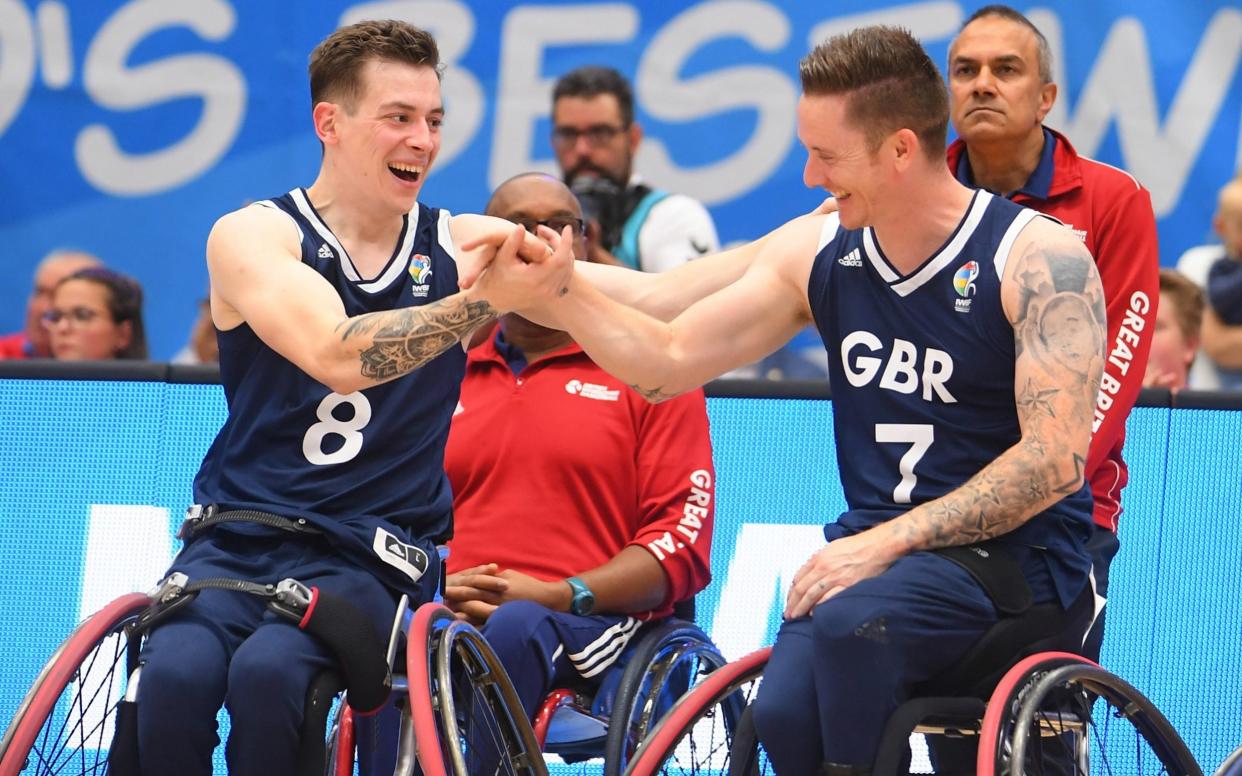Great Britain's wheelchair basketball team would consider boycott of Paralympics over eligibility row

The captain of Great Britain’s wheelchair basketball team has said that the players would consider boycotting the Paralympics over the eligibility row that could prompt a team-mate to have his leg amputated.
Telegraph Sport revealed last week how George Bates, a World and European champion, has been told that he does not meet the International Paralympic Committee’s ‘impairment’ criteria, even though he is registered disabled and has had virtually no movement in his left leg since the age of 11.
Bates, who is 26, lives in constant pain and doctors gave him the option of having his leg amputated when he was 14. It is a decision that he is now willing to review so that he can continue a wheelchair basketball career that peaked with top scoring in the World Championship final against the United States in 2018. Phil Pratt, the captain of the British wheelchair basketball team, said that the players were universally behind Bates and would make their own protest if an appeal fails.
“No-one is accepting that this ends; we are all behind him,” said Pratt.
“Hopefully it doesn’t get to a stage where we are having to protest or kind of boycott the Paralympics or anything like that but, if it had to come down to that... what I can say, without a shadow of a doubt, is that it is not just going to be us, GB athletes who are doing it, it is going to be the whole world of wheelchair basketball supporting this and trying to help George and other athletes like him.
“Obviously that is the worst case scenario. We have to appeal. If that doesn’t get overruled or overturned, there is going to have to be a case of us protesting in some manner. If we don’t make a stand now, what happens to the next George Bates, the next teenage kid who isn’t able to play able-bodied sport? He has no sport, he can’t compete. He has nowhere to go.”
Almost 13,000 people have already signed a petition to the IPC in which they are urged to review their 10-point classification code for disability. Although restricted muscle power or range of movement potentially are eligible impairments, Bates has been ruled out because the specific condition which has caused these problems - chronic regional pain syndrome (CRPS) - is not accepted.
As well as Bates, there are eight other international wheelchair basketball players who have been deemed ineligible and Pratt fears that the IPC’s stance will have a huge impact on future generations of disabled people.
“It was like they were looking to kick people out of our sport to make a statement,” he said. “I have a lot of contacts through other teams. I have never had a conversation with anybody saying, ‘Why is he not playing, he’s not disabled’. It’s just never been an issue.
“I can’t understand who is benefitting from this. The guys with minimal disabilities have elevated our game. I want to compete against the best players in the world. A kid might see a George Bates and think, ‘Wow that’s incredible’. He’s phenomenal. You are taking that away. It’s crazy.
“I just feel like the IPC’s categories are so black and white. George is genuinely one of the nicest, most humble people I have met. He is getting no advantage. There are people [in wheelchair basketball] moving around a lot easier than George. He needs a crutch; he has a terrible limp, he can’t put weight on one side of his body. If you look at his leg, there is one side that looks as disabled as mine - and I am someone who has been in a wheelchair since the age of three.”
A spokesperson for the IPS said they were “sympathetic” with Bates’ situation but said that the athlete classification code “clearly states that complex regional pain syndrome is a health condition that does not lead to an eligible impairment” for Paralympic participation. “We have been working with all international federations to ensure they fully implement and abide by the rules of the code,” said the spokesperson.
The IWBF said that the reassessment process was not their choice and had been “demanded” by the IPC so that wheelchair basketball could remain in the Paralympics. The IWBF agrees that Bates’ condition can lead to permanent impairments and its president, Ulf Mehrens, said that they would lobby the IPC membership to review the latest scientific evidence around certain health conditions.

 Yahoo News
Yahoo News 
